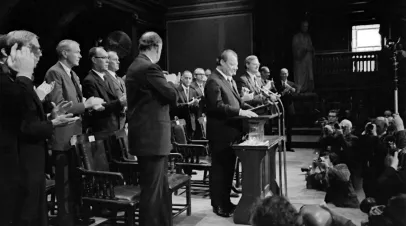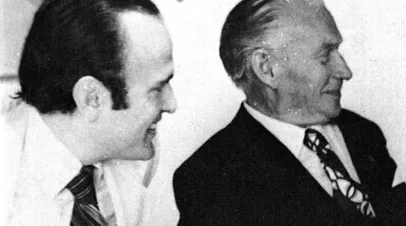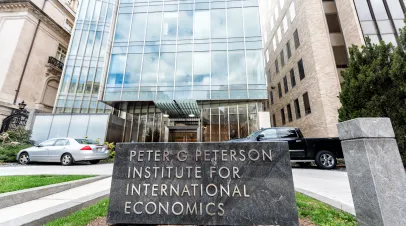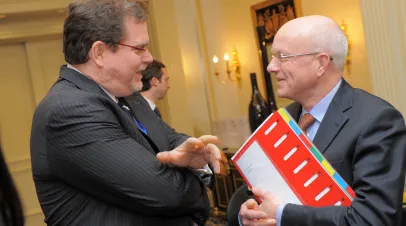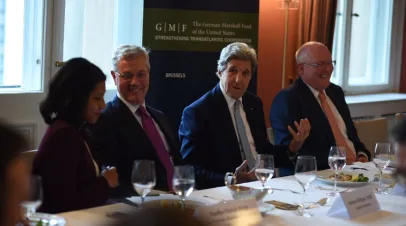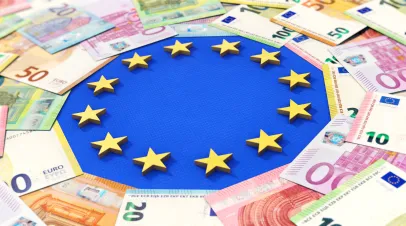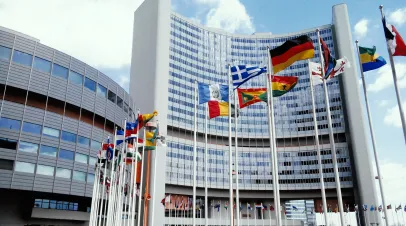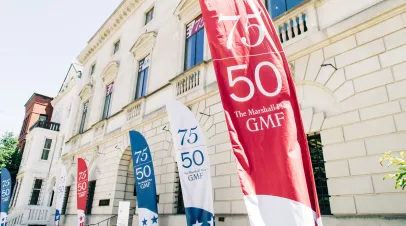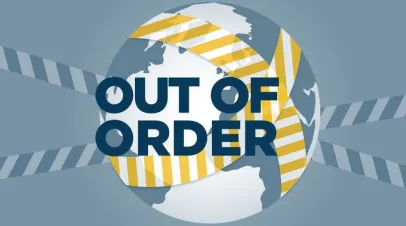GMF at 50
This year the German Marshall Fund marks its 50th anniversary and the 75th anniversary of the Marshall Plan. These historic moments serve as an opportunity to highlight the achievements of one of the most important American diplomatic initiatives of the 20th century and how its legacy lives on today through GMF and its mission.Explore
Expand AllOur History
On June 5, 1972, on the 25th anniversary of the Marshall Plan, former German Chancellor Willy Brandt announced the founding of the German Marshall Fund of the United States at Harvard University.
The Spirit of the Marshall Plan
The Marshall Plan was an audacious, innovative strategy to tackle the most pressing challenges of its time. Breaking Western Europe’s cycle of conflict and rebuilding economies devastated by World War II was an immense task, and the Marshall Plan is a concrete example of the scale of change made possible by imagination, pragmatism, and generosity. GMF’s work carries this spirit into the 21st century.
Timeline
Take a look through the history of the Marshall Plan, GMF, and key moments in the transatlantic relationship in this interactive timeline.
Toward Our Shared Future
Expand AllAdapting the Marshall Blueprint to Win the Future
June 5, 2022, marks the 75th anniversary of General George C. Marshall’s speech announcing a bold and generous policy to help war-torn Europe get back on its feet, which would become known as the Marshall Plan. It also marks the 50th anniversary of the German Marshall Fund. For the anniversary, we are reintroducing the strategic principles behind the Marshall Plan and asking experts to “plan like Marshall” to address today’s global challenges.
The Marshall Plan is often mischaracterized as simply a generous development program, but the aid was part of a clear-headed, multidimensional strategy to counter the biggest challenge of the day, Soviet Communism. The plan had two core dimensions: First, to offer aid to suffering Europeans to ease the desperation that was making them susceptible to Communism. Second, to incentivize European cooperation in order to create a united block that would be better able to hold off Soviet aggression.
We posit that the Marshall Plan’s core principles remain a smart strategy today and can serve as a useful blueprint to win tomorrow.
- Strong partnerships are needed to address major challenges—and weak partners make for weak alliances.
- Short-term advantages are not the path to long-term success; sometimes large investments or concessions now are the best means to success tomorrow.
- Societal vitality is a factor in foreign policy: suffering populations sap a state’s power.
What alliances do today’s major challenges require? What investments and concessions must US and European governments make now to create a peaceful and prosperous future?
